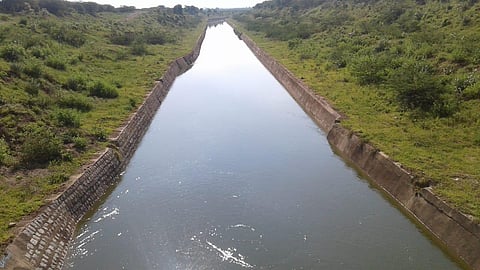

CHANDIGARH: Agricultural experts in Punjab are a worried lot over the latest water indices showing the state will have a net groundwater availability of -14.58 billion cubic metre (BCM) within the next 25 years and even the domestic and industrial water supply will shrink from 1.22 BMC.
“The rate at which the ground water is shrinking is shocking,” says eminent agriculture expert Sucha Singh Gill of IIM, Ahmedabad.
“Against net ground water availability of only 21.58 BCM, Punjab is consuming much more at 35.78 BCM,” he says.
Gill argues for solutions, one of which is crop diversification.
“That’s the only way that groundwater reserves can be saved. For that to happen, the state would have to prescribe Minimum Support Price (MSP) and procurement guarantee for other crops.” he says.
Experts also suggest that the subsidies for free power to tube wells should be curbed and farmers who have in excess of 5 acres and those in constitutional posts should not be provided subsidies.
“Free power has meant drawal of underground water 24X7 without individual consequences. This profligate action should stop,” they argue pointing to the fact that 95% of all water in Punjab is used in agriculture and most wasted.
The government has already passed the Punjab Water Resources (Management and Regulation) Bill 2020 to make way for creation of Punjab Water Regulation and Development Authority to manage the critical water resources.
The authority will be responsible for management, conversion and distribution of water resources in a judicious, equitable and sustainable manner. It is empowered to issue directions and guidelines, issue tariff orders specifying the charges to be imposed by entities supplying water for domestic, commercial or industrial use.
In another positive step, the state has also contracted the National Water Company of Israel M/s Mekorot, for the formulation of a Water Conservation and Management Master Plan (WCMMP). Yet, it’s the vexatious and long-pending issue of the Satluj Yamuna Link project that has raised concerns.
With Haryana and Punjab not budging from their stand on SYL, the share of water for either state, is yet to be determined. Punjab says it has no water to give to the neighbouring state even as Haryana insists on its share.
In 2004, Punjab Assembly had enacted the Punjab Termination of Agreements Act annulling all inter-state agreements signed by state relating to sharing of the Ravi and Beas water, including the December 1981 tripartite agreement.
The same year, the Centre sought the SC’s opinion on the validity of the act by making a presidential reference.